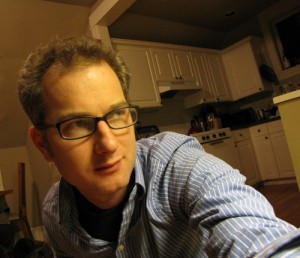Today’s post comes from Bill Lascher, a Portland, Oregon, freelance journalist who covers the environment, renewable energy, sustainable business, transportation, disaster preparedness and green building in the Western United States. He attended the recent 2011 Digital Journalism Camp held in Portland last month and agreed to share what he learned. You can read more about Bill on his website, Lascher@Large.
 These days it seems all journalists can talk about are cool toys.
These days it seems all journalists can talk about are cool toys.
Flip cams, iPads, Twitter clients, RSS feeds, Dropbox shares – news-gatherers seem to regularly tout such technologies as revolutionary industry-saving tools. Yet even as many prognosticators insist journalists adopt or die, the same emphasis rarely exists for basic reporting and storytelling.
Thus, I was hesitant about what I’d gain from the 2011 Digital Journalism Camp held last month in Portland, even though I knew if anyone could pull it off, it was organizer Abraham Hyatt.
He did, but it still came as something of a surprise when, three days later, I found myself excitedly test-driving an online mapping tool I’d learned about at the conference. There I was, putting the finishing touches on a story about earthquake hazards in Eastern Washington, enthusiastically playing with digital cartography tools from Umapper.com.
Umapper made sense to me as an effective story-telling tool. It was a no-brainer in many ways, and I believe that was was one reason keynoter Mark S. Luckieincluded it among an arsenal of tools he wove into his presentation on innovation in journalism.
Encouragement to ‘Be Creative’
But as voluminous as that arsenal may have been, what made Luckie’s keynote so effective had less to do with specific tools and more to do with encouraging journalists to be creative about the techniques they use to tell stories, as he does at 10,000 words, the journalism and technology blog he edits.
Luckie didn’t waste time scolding hesitant journalists for not getting with the program or characterizing them as horse-and-buggiers, as some online news acolytes are wont to do. Using examples from his own work at the Washington Post, Luckie just showed the sort of really cool things a lot these tools are able to do for storytelling.
Not to get too woo-woo, but Luckie’s enthusiasm complemented a day of positive energy that made me hopeful for journalism in the Pacific Northwest. Journalists, at least in our little corner of the Northwest, don’t spend enough time collaborating with one another, so it was encouraging to see how many people came to learn from one another, share resources and discuss ideas. More than 100 attendees from across Oregon and Southwest Washington split their time between nuts and bolts skills workshops on video, audio, business database lookups and the like, and discussions of ethics and business development in an increasingly connected world. Meanwhile, sponsorships from news organizations and tech companies allowed Hyatt to keep the event – and lunch – free and secure Luckie’s participation.
Like any good conference, the worst part was deciding which sessions to attend. That decision was made even more difficult by a series of unconference sessions, or talks on subjects decided upon on the spur of moment. Though I didn’t attend most of those, I sat in for a few minutes of a fascinating presentation by the people at Small World News about the Alive in Libya reporting project.
DJC Podcast Available
Fortunately, Digital Journalism Camp was well-documented, thanks in particular to local media podcaster and blogger Dr Normal, who coordinated free video recordings of all of the sessions. That’s great news for anyone who wasn’t able to attend the camp. Some of those sessions included:
- A “business of blogging” discussion that touched on topics such as building audiences and deploying social media
- A hands-on audio collection and recording workshop
- A presentation on using online databases and other digital resources for background for business stories
- A panel examining opportunities for marginalized communities available through digital tools.
I don’t care if this post reads as fawning, because I left bristling with enthusiasm, and got the sense many other participants did as well. The next step: maintaining and broadening this sort of engagement and discussion.
Which local journalism events such as Digital Journalism Camp do you recommend?